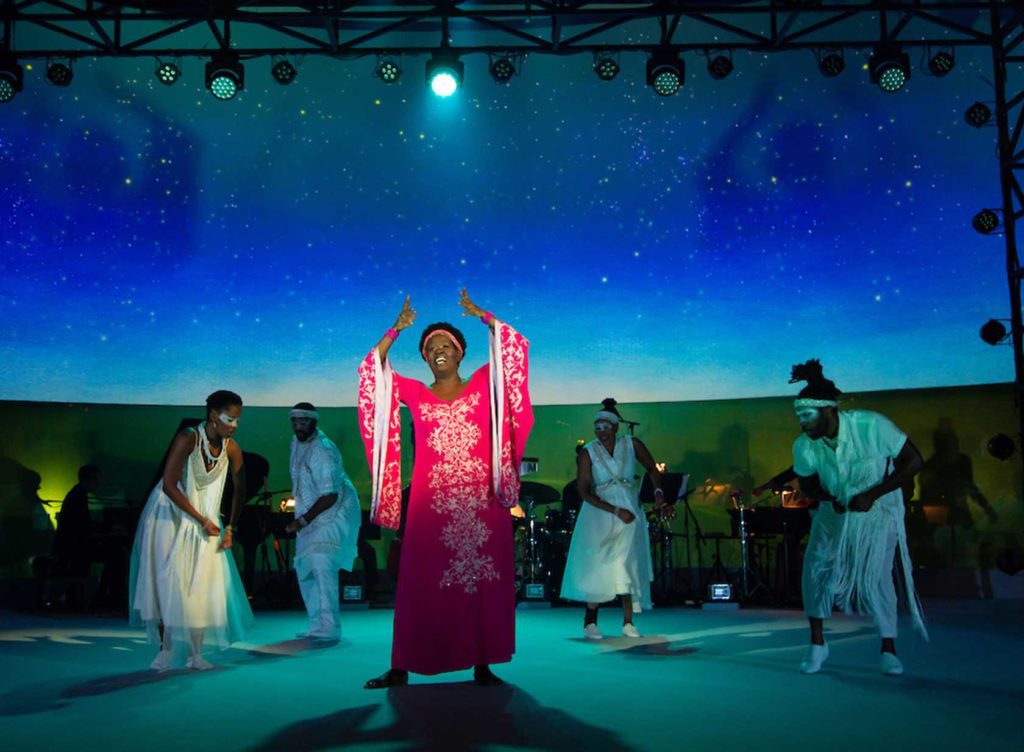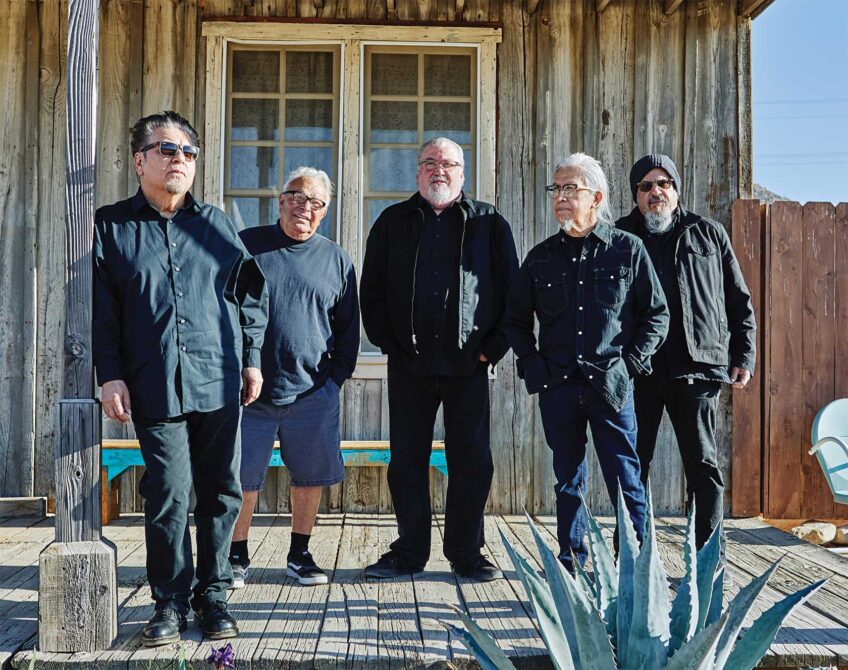
“Dreaming Zenzile,” playing at ArtsEmerson’s Paramount Center Feb. 23–27, explores the rich artistic and personal life of South African superstar Miriam Makeba. Written and performed by Grammy-nominated musician Somi Kakoma, the show unearths Makeba’s lost legacy in the United States.
Kakoma has long been influenced by Makeba’s music, but as she researched the star’s life, she says, she realized there was a lot to Makeba that the general population isn’t aware of. Makeba was the first African recording artist to win a Grammy award; she survived cancer; she was married for a time to Black Panther leader Stokely Carmichael; and she was a powerful civil rights activist.
“The more I researched her life, the more I began to understand how much grace and generosity and humility she had,” says Kakoma. “We actually don’t know what we should know, and this is my small way of trying to honor her and the space-making efforts she did for myself as an artist, as a woman, as an African.”
Kakoma’s homage to Makeba began with a studio album, “Zenzile: The Reimagination of Miriam Makeba,” which debuts on March 4. But as she worked with Makeba’s material and learned about her life, Kakoma quickly realized a more multi-dimensional medium, theater, was needed to tell the full story. This is the first musical Kakoma has written.
On the album, Kakoma is herself, performing Makeba’s songs in homage to the musical powerhouse. In the theater performance, Kakoma plays Makeba, a much weightier responsibility. One of the pieces of Makeba’s life that Kakoma particularly wants to illuminate is the cultural erasure of Makeba in the United States after her marriage to Carmichael.
“That alignment of politics, that alignment of commitment to liberation of Black people, was a threat to this country and to the industry in the 1960s,” says Kakoma. “[That erasure] did exactly what it was supposed to do, which was remove her from the conversation here in many ways, and from the cultural economy.” Whereas Makeba’s legacy is well known and celebrated in other countries, United States audiences are still largely in the dark. This erasure feeds directly into contemporary dialogues about Black Lives Matter efforts and which stories are being told about the Black community and how.
Kakoma hopes “Dreaming Zenzile” will cause audiences to look into Makeba’s work and also to consider what the erasure of Black artists like Makeba means. “There’s always a dialogue that’s there between art and activism,” says Kakoma. “Art disarms people to even start the conversation. You’re basically asking somebody to look closer, to listen closer.”







